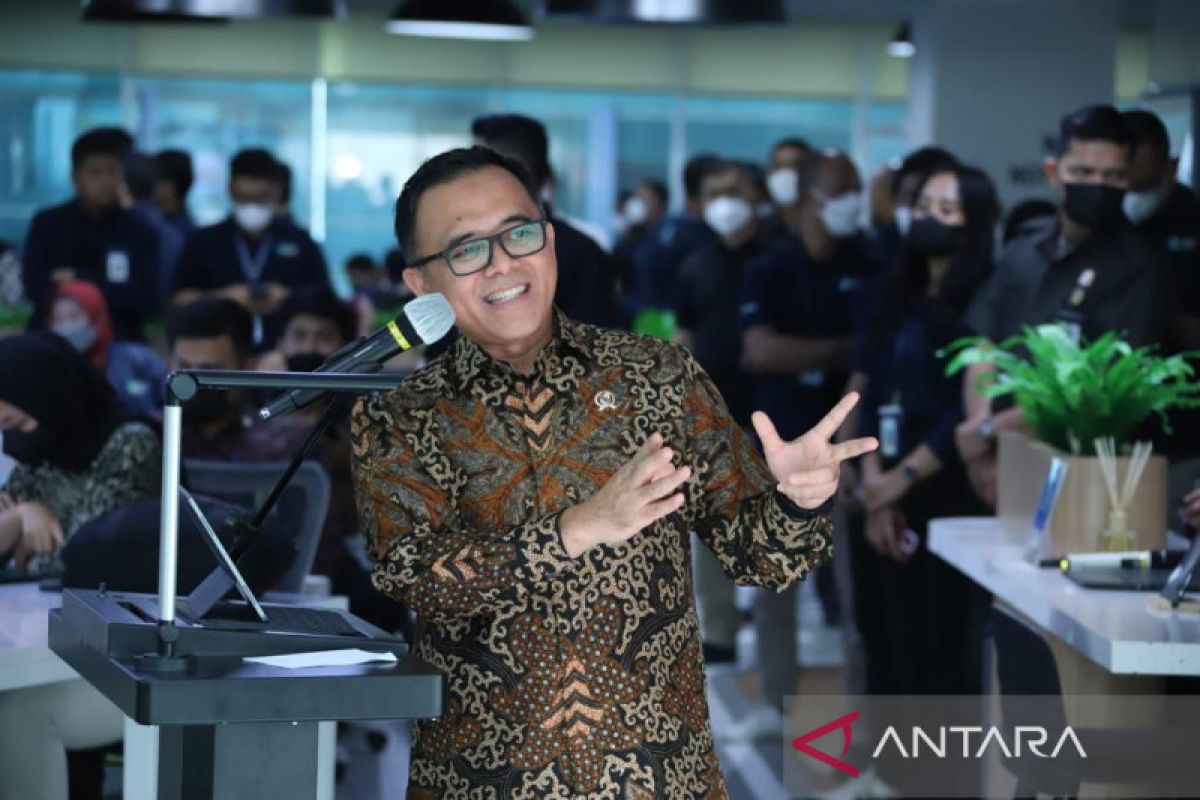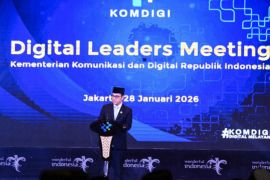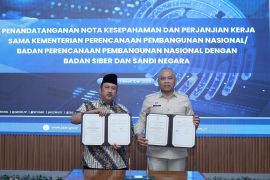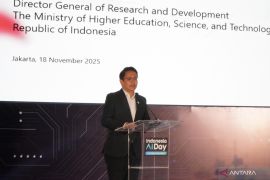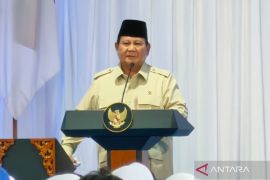"The digital transformation at the Health Ministry is extraordinary. Their CEO’s commitment deserves appreciation, especially digital leadership implemented by Minister Budi Gunadi Sadikin," Anas said at the inauguration of the Digital Transformation Office (DTO) space at the Health Ministry here on Friday.
"I'm sure the Health Ministry is capable of collaborating on the entire health data ecosystem digitally," he added.
This would be a significant improvement or change for the nation’s health sector, he said.
Anas listed five good impacts of the digital transformation in the health sector. The first is improvement in the quality of health services.
The second is the ease of access to health services. The third is that digital transformation could encourage the emergence of added economic value from the health sector with an orientation toward domestic products.
Next, the transformation can accelerate the achievement of the government's priority programs in the health sector, such as reducing the prevalence of stunting.
The fifth impact is increasing the competence of human resources in the health sector while ensuring a fair distribution of health services throughout Indonesia.
"We often say that digital transformation is not just a matter of style, it's a matter of necessity. So, this is for what? This is to make an impact on society," he said.
"This is the philosophy of implementing the Electronic-Based Government System (SPBE), in line with President Jokowi’s (Joko Widodo’s) direction," he said.
He cited the use of technology to help control the COVID-19 pandemic as an example of the good impact of digital transformation of health services.
Anas said that the acceleration of SPBE implementation by the current government is a manifestation of bureaucratic reform.
The government is currently working on implementing thematic bureaucratic reforms that will have an impact on society, he added.
Bureaucratic reform is no longer only focusing on improving aspects of governance, administration, or upstream problems, he said.
Bureaucratic reform also needs to be oriented toward solving downstream problems, such as alleviating poverty, curbing stunting, controlling inflation, increasing the use of domestic products, and boosting investment to create jobs.
Through the inauguration of the DTO space by the ministry, Anas said he hopes that other government agencies will be inspired to take significant steps.
This especially applies to the implementation of SPBE architecture to realize the integration of digital services and carry out digitalization in the public service sector, he added.
DTO is a work unit of the Health Ministry that focuses on realizing the "Healthy Indonesia" program through the development of efficient data-based policies and digital technology products.
On the same occasion, Health Minister Budi Gunadi Sadikin said that his ministry is targeting to develop one Indonesian health data that are interchangeable.
“If the concept is interchangeable, health information can be used anywhere, in all hospitals, both government and private,” he explained.
"Pharmacies, clinics, health centers, and laboratories throughout Indonesia will have the same data format and can be exchanged," he added.
Sadikin said he is targeting to complete the digitalization of health data by January 2024.
In line with the spirit of an impactful bureaucracy, he said he is optimistic that digitalization will have a good impact on all Indonesian people.
Related news: SOEs Holding develops e-commerce site for health products
Related news: Gates expresses support for Indonesian digital health transformation
Related news: HIMSS APAC Health Conference in Bali emphasizes health digitalization
Translator: Tri Meilani Ameliya, Katriana,
Editor: Azis Kurmala
Copyright © ANTARA 2023
